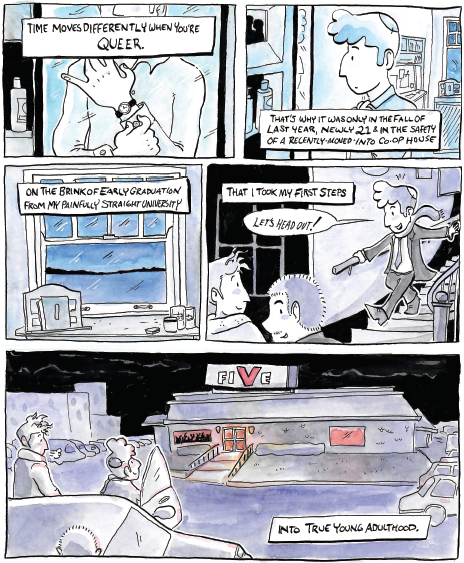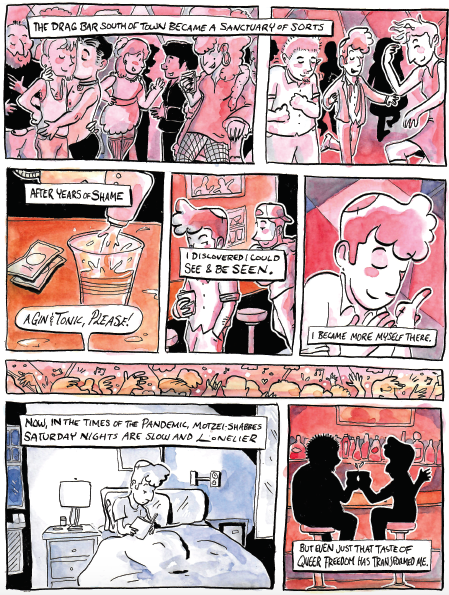Tag : covid-19
January 26, 2021 by admin
#MeToo at the Knesset
Three years after the beginning of the #MeToo movement, members of the Israeli Knesset, at the initiative of the Israel Women’s Network, held an event reminiscent of the Vagina Monologues; Knesset members read aloud narratives of sexual abuse as part of an effort to educate their peers and the public and to promote significant policy measures by the government. “Yes, it is time even today, in the midst of the Covid-19 crisis. Sexual assault does not stop at the virus’s feet,” said Michal Gera Margaliot, IWN Executive Director. These
powerful readings are in Hebrew.
ynet.co.il
- No Comments
January 25, 2021 by admin
Retail Work in the Pandemic Is Hell
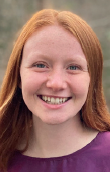
CHAYA HOLCH, 22
Home Haven (name changed), a local, family-owned home goods store, is as close to an old-fashioned department store as it gets these days, with three-and-a-half floors and an array of products that one customer jokingly described to me as “everything you didn’t know you didn’t need.” I begin my work days there by wiping down the catalog keyboard, shared pens, label makers, and pricing guns with sanitizing wipes, then sanitizing my own hands before using the scraper usually reserved for getting gum off the floor to remove dried globs of hand sanitizer from their landing place directly beneath the automatic dispenser.
I, too, sanitize my hands intermittently, although as the day goes on, I remember to do so less and less between tasks. I straighten my magnetized employee badge, greet and make eye contact with customers, try to smile so widely beneath my mask that they can still tell I’m smiling, that I’m ready to help. My feet ache whenever I stop to remember them. A shocking number of customers, required by Vermont law to wear a face covering in the store, seem oblivious to the fundamental science of how masks can keep us safe during this pandemic, slipping their masks beneath their noses and even chins once they’ve entered the store. My coworkers are mostly women about my age, college students and recent graduates. We share leads about other jobs in the area, bemoaning our inability to find work in our preferred industries. Like many people our age right now, we have endured months of professional rejection and share an overwhelming fear for our futures.
Customers come in looking for all kinds of things: slotted spoons, toaster tongs, banana hangers, English muffin slicers, tart dishes, woks, whiskey glasses, 16-piece dinnerware sets, canning equipment. In some ways, it makes sense that people are purchasing so many home goods right now— if we are all spending more time at home than ever, why not buy new baking supplies and cocktail glasses? But it still feels awful to interact with a steady stream of customers looking for frivolous items while the pandemic rages, and to engage with so many people who are “just looking.” The knowledge that so many people are going about their lives as if the pandemic is not happening, or barely happening, is almost heartbreaking. I want to tell everyone to hurry home.
Recently, a mysteriously sweaty young white man came in looking for a beverage container. When I showed him our selection of gallon and two-gallon dispensers, he was dismayed, then explained, “Need bigger. Having a party.” Pause. “Wanna come?” I wanted to ask him what world he’s living in. I wanted to yell that I wanted my life back, too, but guess what? Instead, I shook my head and walked away, leaving him to contemplate his choices.
Chaya Holch is a New Voices fellow at Jewish Currents.
- No Comments
January 25, 2021 by admin
Cohabiting in a Pandemic
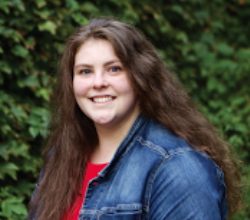
KIRA YATES, 23
One night in January, we saw a rat in my boyfriend’s kitchen. We heard it first, strutting between the pots and pans and knocking spoons off the countertop. Then, it emerged. We watched it waddle across the floor and burrow beneath the sink, fearless.
We gave it a name: Big Boy.
“Oh yes,” my boyfriend’s landlord admitted. The centuries-old farmhouse, located at the border of Cambridge, was no stranger to pests. The walls were thin and the rooms were drafty, full of holes to patch and fixes to be made. The landlord tutted and poked at the fire in the woodstove.
“We need to get rid of them,” Michael said, “They’re eating the food in the pantry and—”
“Oh, don’t mind the boys, Michael!” his landlord chuckled, shuffling the Sunday paper in his hands.
That night, we drove through the slushy city snow to my apartment with another pile of Michael’s clothes in the back seat. “I just—” he paused and smirked at me. We stared at each other, wide-eyed: “Don’t mind the boys, Michael.”
And just like that, I knew that I would never let him sleep next to Big Boy again.
On February 1st, we ate Chinese food on the rug in the living room of our new apartment, because that is what young couples do in movies and because we didn’t own any furniture yet. Our muscles were tired from carrying boxes up and down the stairs, from finding water glasses buried beneath cutlery and pie plates. We listened to a podcast about a new virus in China, and remembered the swine flu a decade before. “I had it,” I told Michael. “In the sixth grade, I brought it home to New Hampshire from a Massachusetts mall.”
“It was just a fever, like a little flu,” I added. I took another bite of lo mein and lay on my back. A moment later, Michael joined me. We stared at our living room ceiling, white and blank, like it was the night sky.
“What if we don’t get along?” I asked.
“We won’t,” he answered. “I think that’s part of it. Think of it as a social experiment.”
As March wore on, the trains grew less crowded. The beginning of my day had been punctuated by being pressed against the window of a train car, steeping in the smell of perfume and baby food and the fragile cardboard scent of grocery bags from Trader Joe’s. And then one day, all the people who owned cars grew scared enough to drive them. The last of us on the train forged a sort of camaraderie— the bond of those who had no other choice.
“I feel so lost,” I told my mom over the phone as I walked home from the train.
“I know, baby,” she answered. “Part of that is the world. And part of that is being 23.”
Michael worked from home even before the pandemic, and each day I returned from work to find him waiting for me. I would close the door, breathe in the smell of home, and collapse onto his chest before my work bag slid off my shoulder and onto the floor.
At night, we would ask into the dark, “Can you sleep?”
Undoubtedly, the other would answer, “No.”
Google automatically suggested a chart of virus data by state on the Covid Wikipedia page whenever I tapped on the search bar.
We took turns panicking. One read new articles while the other cupped their face in their hands, snorting in disbelief that we had front row seats to the end of the world. The scariest headlines, featuring droves of unmasked protesters at conservative political rallies, reminded us of Michael’s old landlord: “Don’t mind the boys.”
When, we asked, would someone “mind the boys?” It was like watching a house catch fire, only to hear the trapped occupant share how much they loved the smell of barbecue.
As the months wear on, and the virus continues its rampage, I have no great insight to offer. I refuse to allow the deaths of over a million people worldwide be a channel for my self-discovery. No, being lost in an age of loss is how I am spending my 23rd year, and likely my 24th. We’ve been forced to make a home in it—all of us. May we always be so lucky as to find love waiting for us at the door.
Kira Yates, a writer who works in development at a Synagogue in Boston, is a former Lilith Intern.
- No Comments
January 25, 2021 by admin
A Performer Forbidden Her Audience

ILANNA STARR, 25
I am an opera singer. It has been almost a year since I last entered a concert hall, performed for an audience, or had an in-person rehearsal. My industry has been forced to close all doors, cancel performances and wait.
I know this is what we have to do to protect artists, neighbors and loved ones. Yet, the uncertainty of when we will meet again in person has left me and most of my colleagues worried about careers we have spent our lives training for, and the future of the arts that give our lives meaning and beauty.
Today, my version of working from home means daily vocal practice, perfecting my diction in more than 10 different languages, learning new roles and repertoire, and creating and participating in virtual projects. All of this work, normally done in the company of teachers, coaches and colleagues, now takes place through my computer.
The transition to virtual life has rendered artists unable to make music with others in real-time and be heard, transforming the collaborative process of music making. Yes, technology affords some semblance of musical collaboration, but singing along with a karaoke track is challenging and confining, even after months of acclimatizing to this new reality.
I had taken for granted the fact that an audience would always be there to engage with, that I could make music together and in real-time with colleagues, and that I could learn and train in the same room as my teachers and coaches. This pandemic has amplified for me something I have long known: that my life has been fueled and energized by collaboration.
On my own, I have developed new skills. I have created a home studio to record projects, and learned more about sound engineering. I have grown my voice studio online and cherish the hours of the week that I get to share with my students. I have had more time to practice music that I love from all different genres and to better understand myself as an artist.
There have been so many days when I have been too overwhelmed by the state of the world to sing, days when words of encouragement to support fellow singers and friends are impossible to muster, and days when I have been consumed by existential questions and hopeless realizations about the future of performing arts.
But beneath these despondent moments, I believe that when our world opens up, people will pour into venues everywhere. So, though it would seem prudent to pivot and find a more lucrative career, I am more resolved than ever to continue honing my craft. It is extremely challenging to be an artist right now, but when this is all over my colleagues and I will be there to remind you of live art’s unique value—and how much you missed it.
Ilanna Starr is pursuing a Master of Music in Voice & Opera Performance at Northwestern University.
- No Comments
January 25, 2021 by Sarah M. Seltzer
From the Editor: How Are We, Really?
A former staffer in the Lilith office would always answer the perfunctory “How are you?” question with an enthusiastic, “I’m doing great, thanks. How are you?” These days, both the question and its cheery, upbeat rejoinder seem out of place. We’ve had to change how we say hello and goodbye.
“Sholem Aleichem” is the common greeting in Yiddish, with its reflexive response: “Aleichem Sholem.” I would hear this exchange as a child, both from elders via the Old Country and from younger folks paying their respects not as mimicry but with an understanding of how sweet the underlying sentiment is: “May peace be upon you; Upon you may there be peace.” I always loved the sureness with which this exchange was conducted. Identical in Hebrew, we traditionally chant the lines as an opening to Sabbath rituals. In Arabic the words are the same. The beseeching and its underlying wish are kindly, benign, sincere, maybe even a little banal. Fair enough. These days we would settle for such hopefulness with which to start any encounter.
But greetings like “How’s it going?”—or even “How are you?” which really demands no answer—feel off-limits to us now, as does that blithe “I’m doing great.” Now, we have to probe deeper. None of us can assume anymore that the person on the other end of any conversation is free from suffering, and I find myself beginning even a simple business email (maybe you do the same) asking for reassurance: “I hope this finds you well, as well as circumstances permit.” Our openings are fraught with the underlying assumption that all lives are under threat this very moment, not something most of us have had to consider during our lifetimes, and never for so long. Certainly after a terrible natural disaster, or 9/11, or—recently and horribly—attacks on synagogues, other houses of worship and peaceful demonstrations. But now the onslaught feels consistent, and long-lasting, with no certainty as to when, or even how, the pandemic will end.
Approaching the one-year anniversary of when the Covid-19 virus broke into our consciousness and our communities, I’ve been thinking about how my everyday exchanges signify a different kind of connectedness and concern than they did before. Even strangers now conclude a routine phone call with “Stay safe.” And we now attend to and value the labor of the grocery store clerk and the delivery person—to say nothing of health care workers and eldercare aides who make possible such limited safety as we are able to muster.
Traditionally, religious Jews respond to the pro-forma greeting “How are you?” with “Baruch HaShem,” thank God. Today, even for non-believers, this pious response may connect with how we’re feeling—and I don’t mean merely religion-by-rote, wherein this response can be as unthinking as saying “Bless you” by reflex when you hear a sneeze. (Of course, in our present circumstances, if anyone sneezed you’d run for cover and wash your hands.) What I mean is that I am perpetually conscious of feeling grateful. You too? Despite horrendous losses of life and of health, losses of jobs and prospects and plans for the future, we hear all around us “I feel lucky to have food to eat, or …a place to live, a friend to call….” Or for a book to read, a podcast for company, or a few minutes to spend with a kid talking about something other than the virus’s disruptions and dangers.
Along with recalibrating how we greet people, we’re redefining what constitutes happiness for us now. We’re grateful on this small scale at the same time as we recognize the poisonous behaviors from callow and careless officials who were entrusted with public health and safety and who instead cast aside science, good sense, empathy, responsibility and more to exacerbate our danger rather than ameliorating it.
So, how will our new greetings, with their concern for and gratitude toward others, translate on a larger scale? Dare we hope that even if our own prospects shrink we’ll nonetheless look for ways to help others grow theirs? You know that characteristically the poor give more generously to charity, as a percentage of income, than do the wealthy. Will those who have prospered begin to give more, both to meet daily needs and to drive our society towards justice? Will the gratitude for our own small and large blessings spill over into good deeds, so that we can be reasonably sure down the line of having good health and good government, more fairness and less bias, more food and less hunger, more safety and less peril? May it be so. And may peace be upon you. Sholem Aleichem.
Susan Weidman Schneider
Editor in Chief
- No Comments
January 25, 2021 by Sarah M. Seltzer
The Lost Taste of an Apple
I MOURN THE TASTE OF APPLES—tart-sweet, honeyed. I can still feel the crisp fine flesh in my mouth, but all taste is gone, along with the tang of cinnamon, rich coffee, and spicy tea. Irish oatmeal is simply horsey hot texture, toast is hot cardboard even spread with “butter,” pretzels mere crunch except for crumbs of “salt.” While Covid-19 robbed me of this cherished sense, I was never hospitalized or in grave danger. Although I was very sick and in pain, I was rarely frightened, because my doctor for over 30 years—despite his 16-hour days at the hospital—called or texted me two or three times daily to check on my breathing, oxygen levels, and symptoms. On my worst night, I woke bathed in sweat imagining a mortuary I.D. tag being fastened to my big toe and found myself desperately chanting, “I will not be dead, I will not be dead, I will not.”
After the fever subsided, my enduring symptom was pleuritis—inflammation of the lining of my left lung scarred from previous lung cancer surgery—painful, debilitating, persisting over weeks—but causing no respiratory deficits, so I was quite fortunate. Yet just sitting up for two or three hours to read sends me back to the comfort of my quilt.
Despite my missing sense, I’m grateful for the other four: The sight of emerald philodendron trailing down the sunlight that floods the rich blue walls of my quarantine bedroom; the virtuoso robin who sings all night in an unseen tree outside my window; the daily get-well phone call from Jane, my best friend of 50 years. Though we can no longer exchange morning hugs over lattes and almond croissants at the Silver Moon Bakery, we exchange book tips and grandchild first-steps and new-tooth news long-distance. And as I slowly heal, my needle pulls shining scarlet thread through the quilt I’m embroidering with the names of the children and grandchildren in our family.
Before I got sick, I never felt imprisoned at home during the Lockdown: It offered precious time with my busy litigator husband and opportunities to launch valued projects: to give the final polish to my sixth novel; to finish quilts started 30 years ago; to begin painting for the first time; to enjoy challenging books, which sustained me when I could do nothing but read; to sew colorful masks for the whole family.
Long ago I read that one should be able to live a lifetime in one room without getting bored. I’ve spent my life developing the resources to do that. More than 30 years of living with a painful neurological illness that often forced me into solitude helped me develop those skills. The books in my library speak to me like intimate friends, and outside my windows Iseek an ever-shifting skyscape of clouds and atmosphere; a cityscape of rooftops, water towers, and other people’s windows to scrutinize; the ever-shifting colors of the Hudson River—and the George Washington Bridge—white, black, silver—and especially breathtaking at night. I long for the energy to paint it.
Even lying in bed, another sense channels the soundscape of the city: the syncopated punctuation of now-infrequent cars and buses; the vivid alarms of ambulances; the chatter of dozens of sparrows in the “bird-apartment houses” in the 10-inch space between our tall building and the next; the nightly ear-splitting shriek of one motorcycle blasting through the midnight silence; the radiant song of that one robin. Perhaps best of all, the zany seven o’clock hullabaloo in honor of all the front-liners, medical and otherwise: a cacophony of cowbells, clapping, one droll saxophone, whoo-hoo’s, and random heartfelt yelling.
For many days, that racket woke me in my bed and I could only smile; recently, I made it to a window and rang my cowbell leaning against a wall, feeling a tiny part of the generous energy of my neighbors pouring out their gratitude in that shared five-minute burst of love. In some strange way, that energetic dissonance entered into me as healing. It reminded me that we are all alone together: that gratitude is the ground base I connect with and will continue to draw strength from—like water from a well of sound.
Now I sit staring into the scarlet blossoms of a geranium I placed in the center of our dining table to brighten our quiet meals. I nursed it on a windowsill all winter till it finally broke into exuberant bloom three weeks ago. The crimson is almost fluorescent; I can taste the color despite my lost sense—strong and spicy, hardly shy. I see each large blossom is made of many flirty florets, framed with broad velvet leaves in three, no four— five?—shades of spearmint green.
For me, there will be no end of exploration, even in this small room—even without the honeyed taste of apples, the tang of cinnamon, or the bite of salt.
- No Comments
January 25, 2021 by admin
A College Senior During Covid Waits for the ‘After’
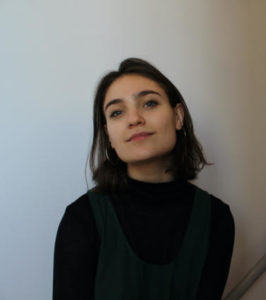
NOA WOLLSTEIN, 21
I left college as a second-semester junior, not knowing if I was coming back. While the class of 2020 was pitied for losing their graduation and final moments with friends, I envied them their near-complete four years at school. My senior fall has since gone online, and there’s no indication of a different fate for the spring.
Sitting alone in a house in Long Island, as my family members returned to in-person work, I’ve struggled to adjust to the new normal. I’ve been told to think of the future, when the pandemic inevitably ends and life, in one form or another, continues. The problem is that I have no idea how to look ahead. My classmates and I are back to living like high schoolers, but with thesis deadlines.
The road of school and education—from primary to middle to high to higher—that I’ve been on for so long is coming to an end. The big unknown beyond May was always supposed to be scary, a haze with the words “the rest of your life” floating in it. Still, I had bargained on having a framework for these last months before I enter “the real world.” It’s an interval of time short enough to make me panic-scroll through job listings, but long enough to stop me from actually applying to any of them.
I can’t visualize a future where I still study beneath stained glass library windows, go to rehearsals for my dance company, or live within walking distance of all my friends. And while I know (or hope) new joys will fill the life I build for myself after graduation this spring, how can I predict what they’ll be? How do I see the little moments that make living sweet, when I don’t know what I’ll be doing or where I’ll be living? Who even knows if I—or anyone else in my class—will have a job?
When school shut down in March and my dad drove me home a few days later, it felt dramatic to think of the moment I left campus as the end of life as I knew it. Yet in a sense it was: more than seven months later, I’m still waiting in limbo, holding my breath until I find solid ground again.
By now I imagined that I’d be getting through this year by embracing the unknown. As that moment of enlightenment has yet to arrive, so for now my solution is a little less ambitious. I’m focusing on midterms, taking up embroidery, and trying to take the day one hour at a time. Eventually, piece by piece, that will bring me to the future.
- No Comments
January 25, 2021 by admin
Battling Depression in Quarantine
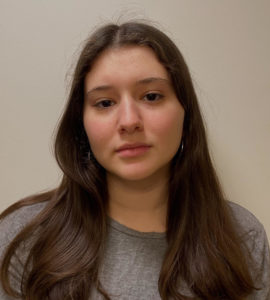
RACHEL FADEM, 19
This September, I moved back to New York City, where I’m in school, and began online classes. With the new expectation that we should be performing our best, even with the restraints of the pandemic, my hard-won equilibrium from the summer faded. I missed large chunks of days from constant dissociation. I felt inhuman.
It took me about a month to recognize something was really wrong. My therapist asked me if I had any thoughts of death during one of our sessions. At that moment, I realized that I had been repressing serious mental health issues because I wanted to be “okay.”
I debated dropping out of school for the semester. I just couldn’t seem to deal with my responsibilities. I texted a friend because I needed to vent, and I knew that she would to listen. She called me and spent her night helping me make a plan for my mental health.
As we talked I realized that, in an effort to keep up with internships, student club boards, running my handcrafted jewelry business, and writing for pleasure—all on top of being a student and trying to manage my health– I had put too much on my plate. Since that conversation, I’ve been making an effort to emphasize self-care over my other responsibilities. I have been able to get more done, and I’ve been feeling better about my life, my future, and the world around me. I would still consider myself depressed, but I’m functioning. It’s the small victories that count.
I’ve been making a conscious effort to take every opportunity I can to find joy. If I don’t have anything due the next day, I spend my nights cooking for myself, doing an activity I enjoy, looking to my community to find comfort.
Now, even though I’m stuck inside for most of the day, I tell myself that I’m not alone. This pandemic has been difficult for so many and what we are able to produce or accomplish during this crisis does not determine our value.
—
For anyone in a crisis text HOME to 741741 to connect with a Crisis Counselor.
Rachel Fadem is a Lilith intern and NYU sophomore studying journalism and gender and sexuality studies. She hopes to one day get paid to write about rape culture and sex work through a feminist lens. When she isn’t busy with school or working at Lilith, you can find Rachel listening to the You’re Wrong About podcast and making earrings.
- No Comments
January 25, 2021 by admin
Covid Forced My Relationship Long-Distance
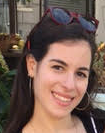
ARIELLE SILVER-WILLNER, 24
My girlfriend and I celebrated our one-year anniversary over FaceTime, each of us curled up in a blanket fort, 1,600 miles apart. We ate dinner “together,” opened gifts that we’d sent by mail, and played games. By the end of the evening I was in tears, overjoyed to have such a special person in my life, yet heartsick after nearly four months of our unplanned distance, which still has no end in sight.
In mid-March, my girlfriend got a late-night phone call from her parents, asking her to come home to Texas immediately, in anticipation of a New York City pandemic lockdown. Assuming she would be back within a few weeks, she agreed to go, and eight hours later she was in Houston.
Less than a week later, my mom and I decided it was time to quarantine. As the Covid cases began to climb in the U.S., so did my anxiety. I worried about my health, which is already weakened by chronic illness and a compromised immune system. I gave up my babysitting job and my other work went remote. We began to have our groceries delivered and to sanitize them meticulously when they arrived. But still, I felt vulnerable.
For months, my girlfriend and I had little to do but miss each other. We sent letters and care packages. We watched movies together over FaceTime. We spent hours on the phone reassuring ourselves that this would all be over soon and discussing all the things we would do together over the summer—then, when summer came and went, what we’d do in the fall. It was a depressing game of pretend, compounded by the fact that just weeks before the pandemic took over everyone’s lives, we had decided to move in together.
Now, we complain about how unfair it all is, then check our privilege: we are safe, with technology that allows us to see each other’s faces and hear each other’s voices every day.
In a perfect world, my girlfriend would find a job she could do remotely, so that she could afford to return to the city. Until a safe and effective vaccine is widely available, that’s the only way we’ll be able to reunite—because the only jobs that seem to be hiring are positions for essential workers, which would pose a health risk for me.
My negativity and gratitude come in alternating waves. I want to hug the person I love, but I am grateful to have someone to miss, and that she is safe. I worry about my health, but I am fortunate to have a job that allows me to work remotely. Like everyone, I am impatient and afraid, but I know that this moment will end. And until then, I will remind myself to choose gratitude, and blanket forts and FaceTime.
Arielle Silver-Willner is Lilith’s Editorial Assistant (and former intern!) and a frequent contributor to the Lilith blog and magazine. She works part-time in childcare and spends her free time taking photos and trying to finish her first novel.
- No Comments
 Please wait...
Please wait...

